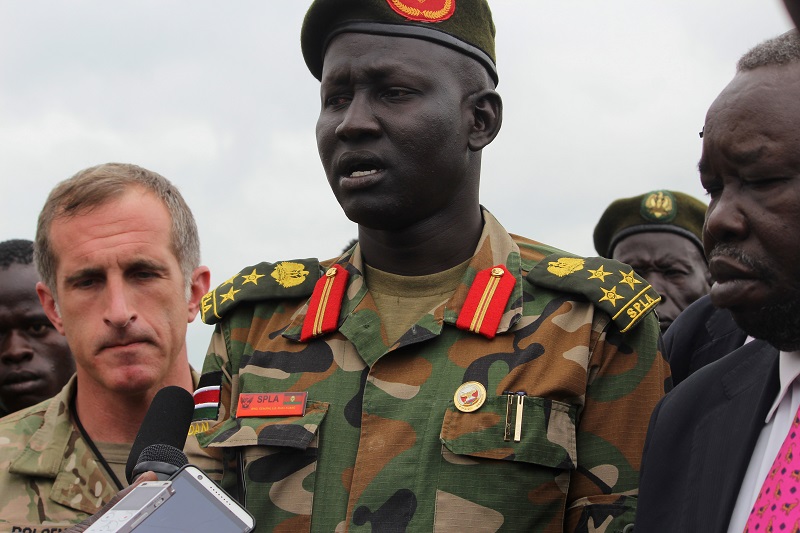The International Press Institute today (IPI) condemned the South Sudanese government’s refusal to investigate the death of a freelance journalist killed on Saturday in fighting between government forces and rebels, and it demanded that authorities meet their obligation to distinguish journalists covering conflict from combatants.
The 26-year-old freelance journalist from the United States, Christopher Allen, was killed during heavy fighting near the border between South Sudan and Uganda while embedded with rebels who were mounting attacks.
A rebel spokesman, Col. Lam Paul Gabriel, told the Associated Press that Allen and two other journalists had been accompanying the rebels on a two-week mission.
The South Sudanese army’s chief medical officer, Dr. Peter Ajak Bullen, said that Allen was shot in the head with a “large bullet”, but he said he could not confirm whether the journalist was shot at close range.
Rebels and the South Sudanese army gave differing accounts of Allen’s death. According to rebels, government forces “targeted” Allen when they saw him taking photographs during the fighting. They claimed Allen was wearing a large vest emblazoned with the word “PRESS”.
However, a spokesman for the South Sudanese army, Brig. Gen. Lul Ruai Koang, denied the claim, saying on Tuesday that government forces had no indication that Allen was a journalist. He further warned that journalists would not be protected if they “come with rebels” into the country.
Speaking to journalists on Wednesday, South Sudan Information Minister Michael Makuei Lueth, said that the government regretted Allen’s death. But he ruled out an investigation into the killing and accused Allen of having “entered the country illegally to work alongside rebels”.
Lueth said Allen had been denied entry in June because of “hostile reporting” and that his illegal entry made him a “criminal”.
IPI Director of Advocacy and Communications Steven M. Ellis blasted those comments and urged South Sudan’s government to reverse course.
“Coming amid allegations that Mr. Allen was deliberately killed, authorities’ flat-out refusal to investigate his death and their comments indicating that South Sudanese forces will treat journalists accompanying rebels as combatants raise disturbing questions,” Ellis said. “Allowing journalists to report freely and without fear that they will be targeted is not only a requirement under international law, it’s absolutely vital to understanding the conflict and ongoing developments.”
He continued: “We urge the South Sudanese government to allow an investigation and to ensure that government forces understand that journalists reporting on conflict are neither combatants nor legitimate targets, regardless of who they may be accompanying at a given time.”
IPI last year presented a document summarising international principles for journalists’ safety, the International Declaration on the Protection of Journalists, which states, in relevant part: “All journalists, media professionals and associated personnel have the right to the full enjoyment of the rights enshrined in international human rights law and international humanitarian law while exercising their right to seek, receive and impart information and ideas, regardless of frontiers.”
The Geneva Conventions and their Additional Protocols require that journalists who are engaged in professional missions and who are not taking a direct part in hostilities are entitled to the same rights and protections as civilians.
South Sudan, where the ongoing civil war has claimed tens of thousands of lives and forced more than three million people to leave their homes since it began in December 2013, is one of the more dangerous countries in the world for journalists. According to IPI’s Death Watch, at least nine journalists, including Allen, have lost their lives in connection with their work since fighting broke out.
Authorities in the country regularly close and block news outlets, and arrest journalists in response to reporting on the war. In recent months, the Union of Journalists in South Sudan has catalogued more than a dozen instances in which journalist have been beaten, detained or denied access to information.
